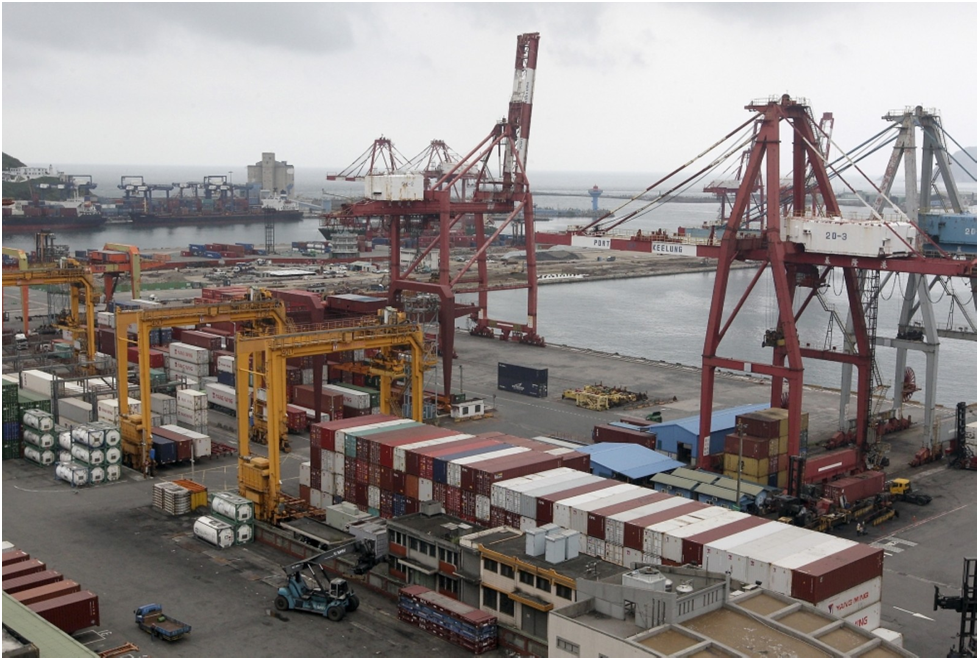
Taiwan's export orders increased at a slower pace than anticipated in november, as weaker smartphone shipments countered the strong demand for artificial intelligence technology amidst sluggishness in China.
According to the economy ministry, export orders rose by 3.3 percent last month to $52.27 billion compared to the same time last year.
This growth fell short of the 6.3 percent increase predicted in a Reuters survey and the 4.9 percent rise seen in October, though it marked the ninth consecutive month of growth.
Orders for products from taiwan, the base for tech giants like chip manufacturer TSMC, serve as an indicator of global technology demand.
The ministry anticipates that the momentum in export orders will persist into next month, driven by high demand for advanced semiconductors and AI, as well as vendors prioritizing inventory before the Lunar New Year holiday, which occurs in late january 2025.
Nevertheless, this momentum could be hindered by factors like geopolitical tensions and disputes over technology between the US and china, the ministry added.
It projected that export orders for december would increase between 13 percent and 17.5 percent year-on-year.
In november, orders for telecommunications products in taiwan decreased by 2.3 percent year-on-year, while orders for electronic products rose by 7.2 percent during the same period.
Overall, orders from china deteriorated, declining by 3.4 percent compared to a slight 0.1 percent drop the previous month.
Orders coming from the united states surged by 11.7 percent, although this was down from a 12.6 percent rise in October.
European orders fell by 7.9 percent in november after a 2.7 percent gain in October.
Orders from japan increased by 17.8 percent compared to a growth of 5.3 percent the month before.
Taishin Securities Investment analyst Kevin Wang noted that concerns among exporters about potential tariff increases from US President-elect donald trump, who will assume office on january 20, could stimulate strong export activity in December.
'Manufacturers are apprehensive regarding the forthcoming tariff policy and will likely expedite their exports,' he remarked.
Companies in taiwan, such as TSMC, the leading contract chipmaker globally, provide major supplies to tech giants like apple and Nvidia.
In november, exports to the united states grew by 10.6 percent year-on-year to $8.65 billion, though this was a decrease from October's 20.5 percent rise.
Exports to china, Taiwan's largest trading partner, rose by 9.5 percent, a recovery from the 2.1 percent drop observed the prior month.
Total exports of electronic components surged by 14.6 percent year-on-year in november to $16.73 billion, with semiconductor exports increasing by 15.5 percent.
Imports rose by 19.8 percent to $33.16 billion in november, exceeding economists' expectations of an 18.15 percent increase.
Meanwhile, Taiwan's central bank upgraded its growth forecast for the tech-driven island but highlighted risks for the upcoming year related to the trade policies of the incoming trump administration in the US.
Taiwan's economy has gained from the pivotal role of domestic companies like TSMC in the AI revolution.
However, due to its dependence on trade, taiwan risks being affected by the across-the-board import tariffs that US President-elect trump has proposed.
The incoming president will take office on january 20.
Following its quarterly board meeting, where it maintained the benchmark discount rate at 2 percent as anticipated, the central bank stated that uncertainty surrounding US trade policy has significantly increased, advising caution regarding potential changes in the global trade environment.
The bank expressed its expectation that Taiwan's economy will maintain growth momentum next year, with emerging technologies, including the AI boom, continuing to enhance the island's exports.
However, the 2025 GDP forecast does not currently account for any possible impacts stemming from alterations in US trade policy.
"That represents a significant level of uncertainty," governor Yang Chin-long stated to the press. "The trade policy of the incoming US administration is a crucial factor influencing our economic growth for the upcoming year." The central bank has increased its 2024 economic growth forecast to 4.25 percent, up from the previous estimate of 3.82 percent made in September, and it anticipates a growth rate of 3.13 percent in 2025, compared to the earlier projection of 3.08 percent.





 click and follow Indiaherald WhatsApp channel
click and follow Indiaherald WhatsApp channel